One of the best places to grab a bite to eat, enjoy people watching while being surrounded by one of the most beautiful views in Dresden, is at the Dresden Neumarkt. The Neumarkt is the cultural centre of the Dresden historical district. This area was mostly entirely destroyed in WWII during the same bombing runs that destroyed the Dresden Frauenkirche. After the war, during the communist era, the surrounding buildings were rebuilt in the socialist, realist style. This was not a favourite of the German people and after reunification these buildings were demolished and the reconstruction of the Neumarket to restore it to its original architectural style got underway.
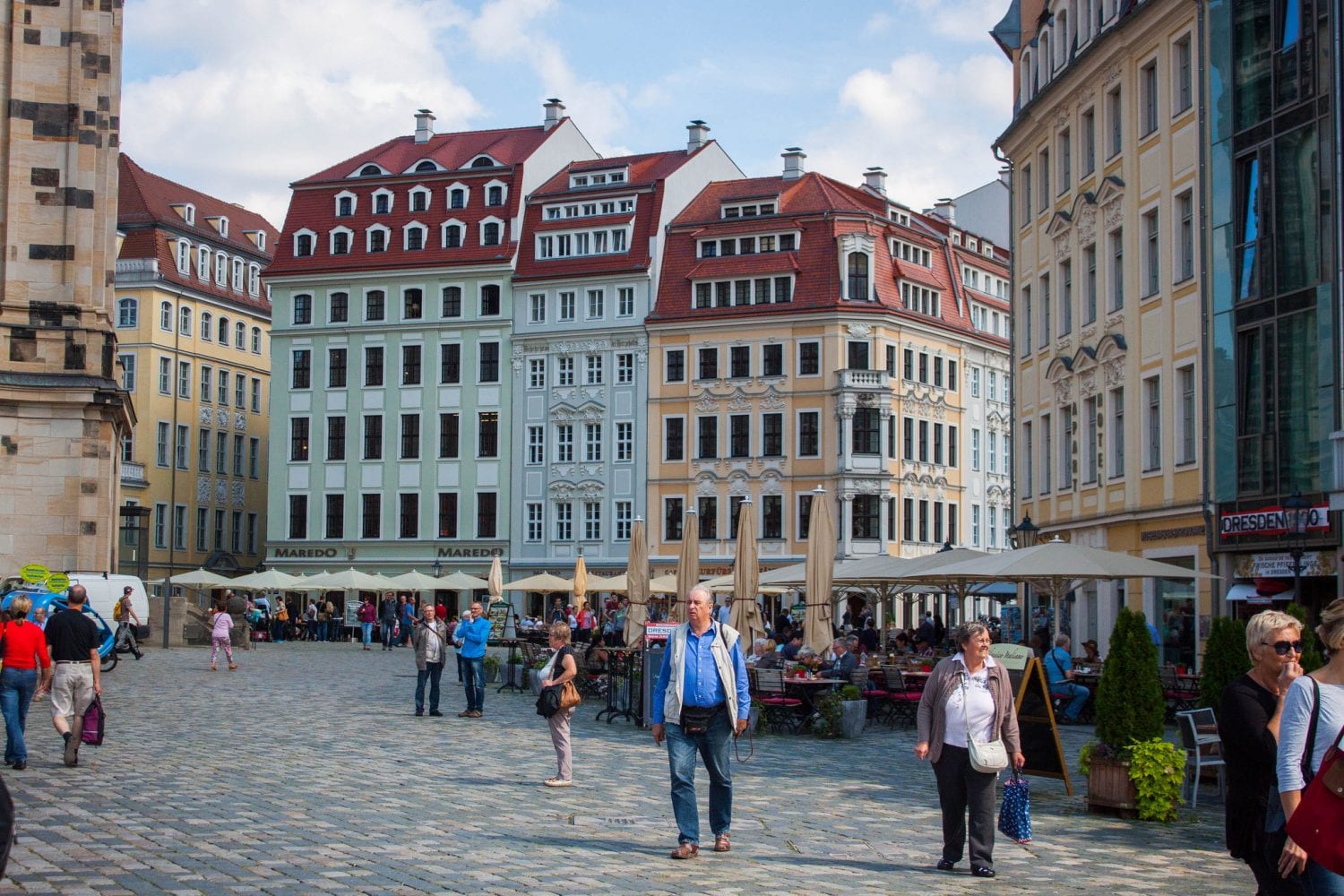
This was another huge undertaking for the city and is still going on to this day. If you’re interested in see a panorama view of the square month by month over the course of more than ten years checkout this website! It gives you great insight into the massive undertaking that was the restoration of the square.
The original Neumarkt was designed in the German Baroque style. Baroque loved pastel colours, not just on their frescos; everywhere they could put them. The dark colours of the Renaissance had faded out to these beautiful, bright cream colours. Baroque designs for everyday buildings were much different than if they were for Churches or important state structures. The buildings were more uniform and then would have one distinct feature where the designers would place a high level of decoration.
You will frequently see ornamentation around the doorways or windows on theses buildings while the rest of the structure is relatively simple. The buildings themselves look so graceful and feel almost otherworldly painted in that airy, pastel palette. In the centre of the square lies the Dresden Frauenkirche and a bronze statue of theologian Martin Luther. This statue survived the bombings and after reformation was returned to its place of honour in front of the church.
The Neumarkt is certainly a very touristy place, but there still are some great, unique places to eat. Don’t be fooled by the touristy gimmicks, stick to something traditional. Something that’s been standing in the same spot, serving up food as it would hundreds of years before. Avoid “Canadian Steakhouses” and Italian gelato shops.
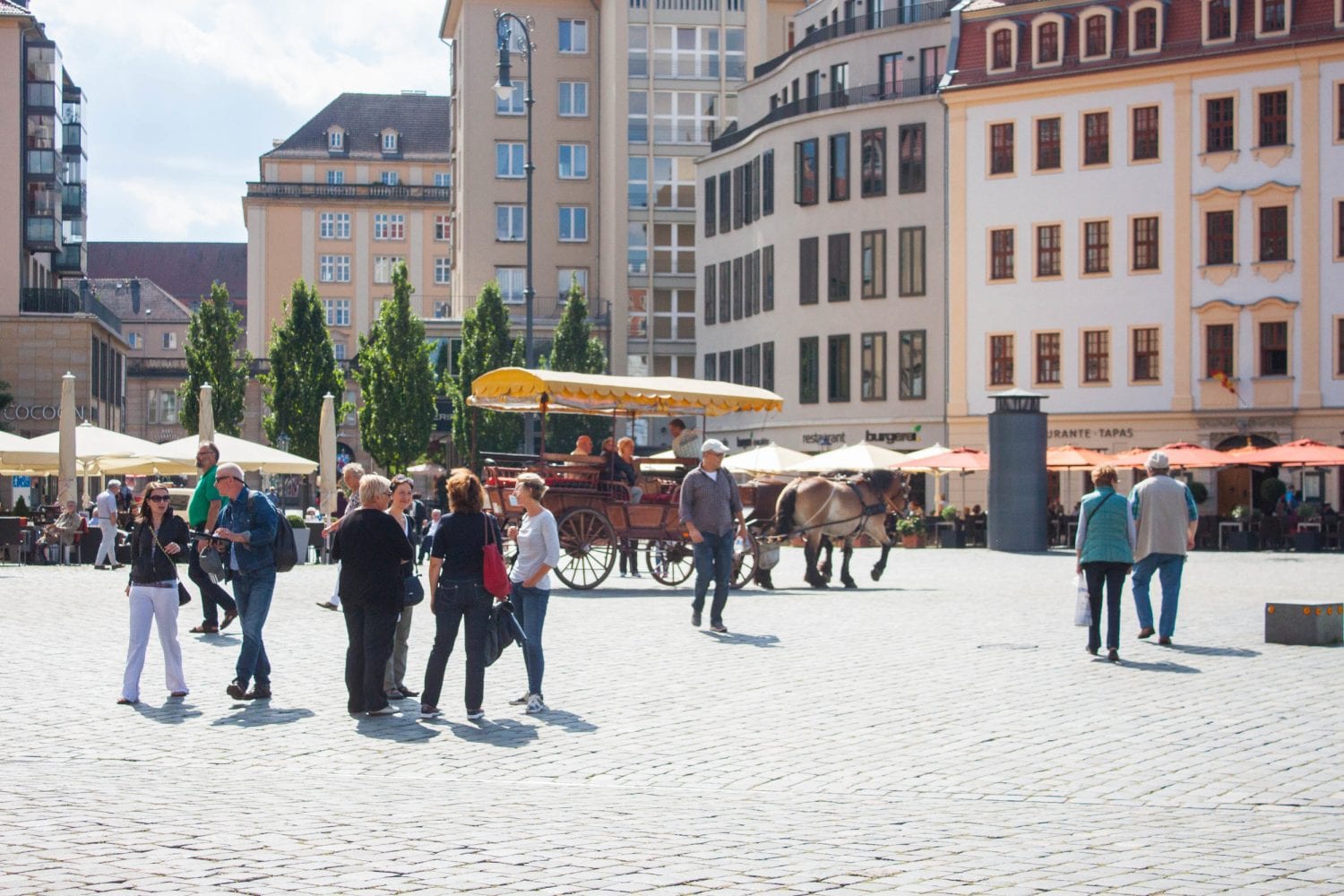
We chose to have lunch at the Augustiner an der Frauenkirche. This three storeys traditional German restaurant serves up seasonal Bavarian cuisine and fresh from the barrel beer. There are usually around five different beers to choose from and your waiter can expectedly select a great one to accompany your meal.
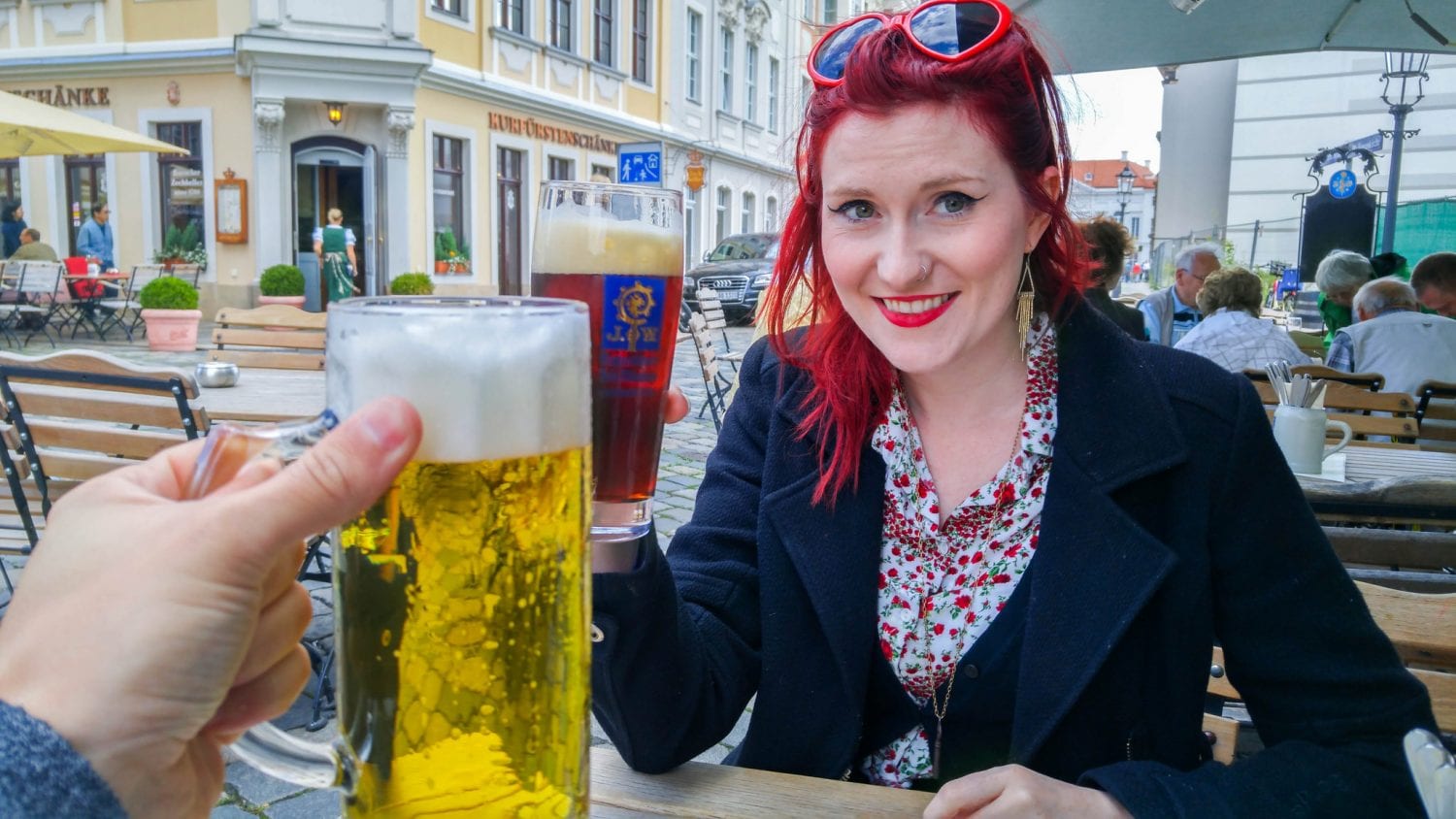
We started the meal off with one of our favourite things to eat in Germany, or anywhere in the world, a fresh buttery pretzel! And there is no better place to get one than in Germany. This one was served up with some traditional grainy mustard – yum yum. Not our top pretzel of the trip but delicious nonetheless. Dan got a darker beer, and I settled on a light, wheat beer. The beer was so fresh and crisp; it hit the spot after a day of walking.
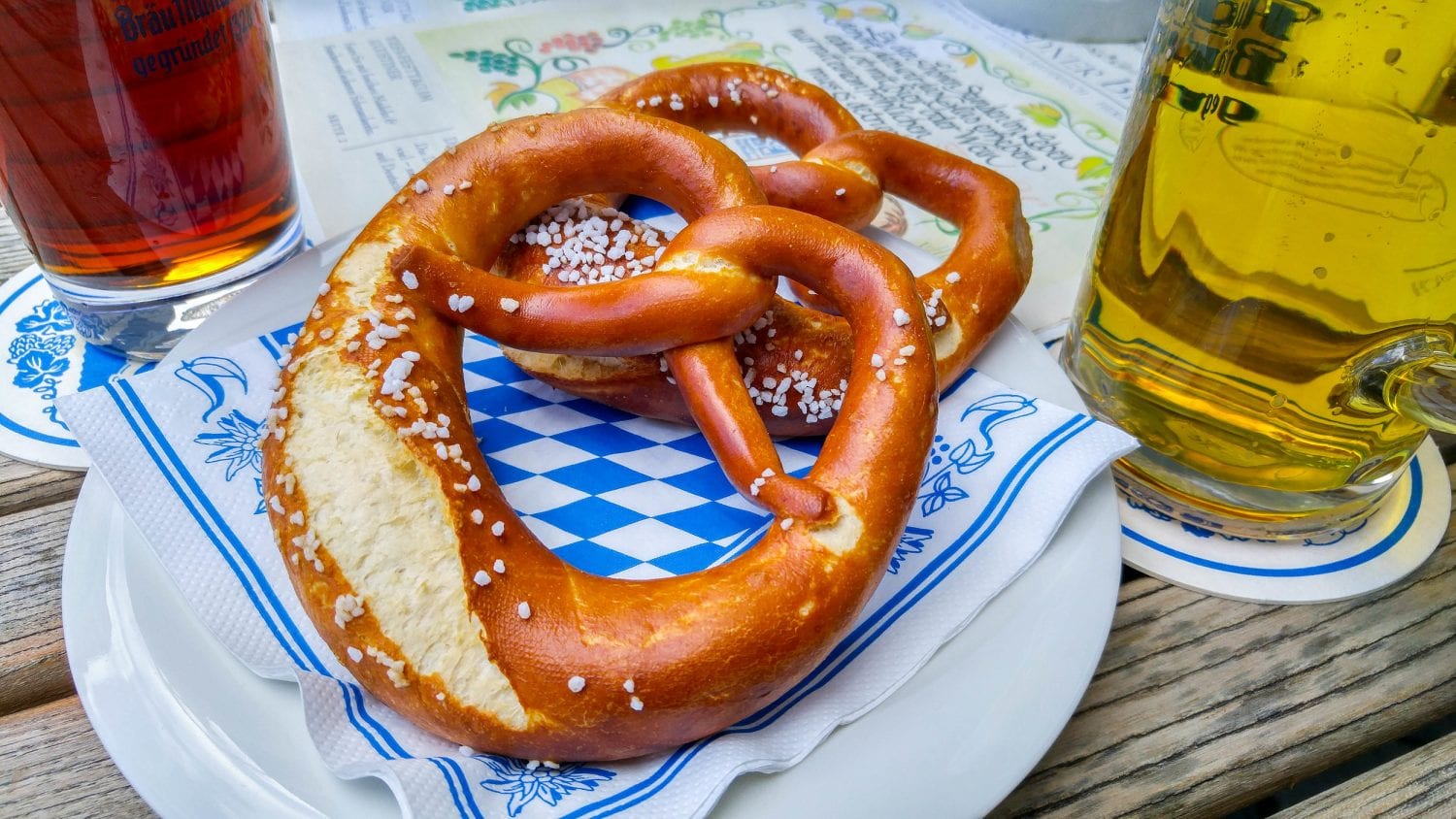
The table we chose was outside, right on the square and was such a great place to people watch and admire the architecture all around us. Even though it was a little chilly, a jacket was all we needed to stay comfortably outside. Although, I could only imagine how lovely it would be in the summer when all the tables are full of happy people, roaring with laughter and enjoying a nice cold brew.
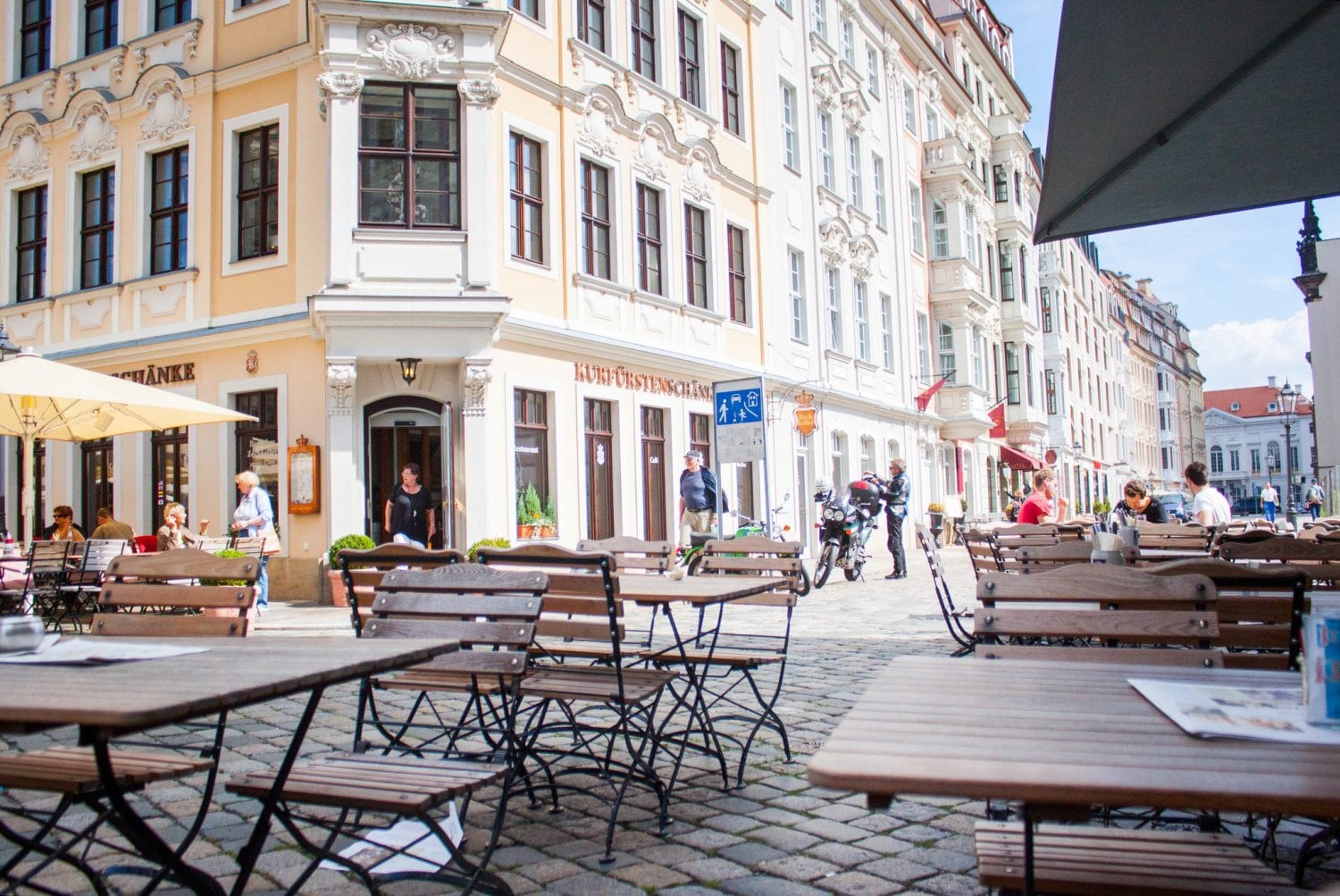
Inside there is both a very traditional upper floor, decorated in dark wood and an enchanting German hodgepodge of collectables and paintings. Or you can sit downstairs in the old looking basement, complete with medieval stones. This would be a lovely place for dinner.
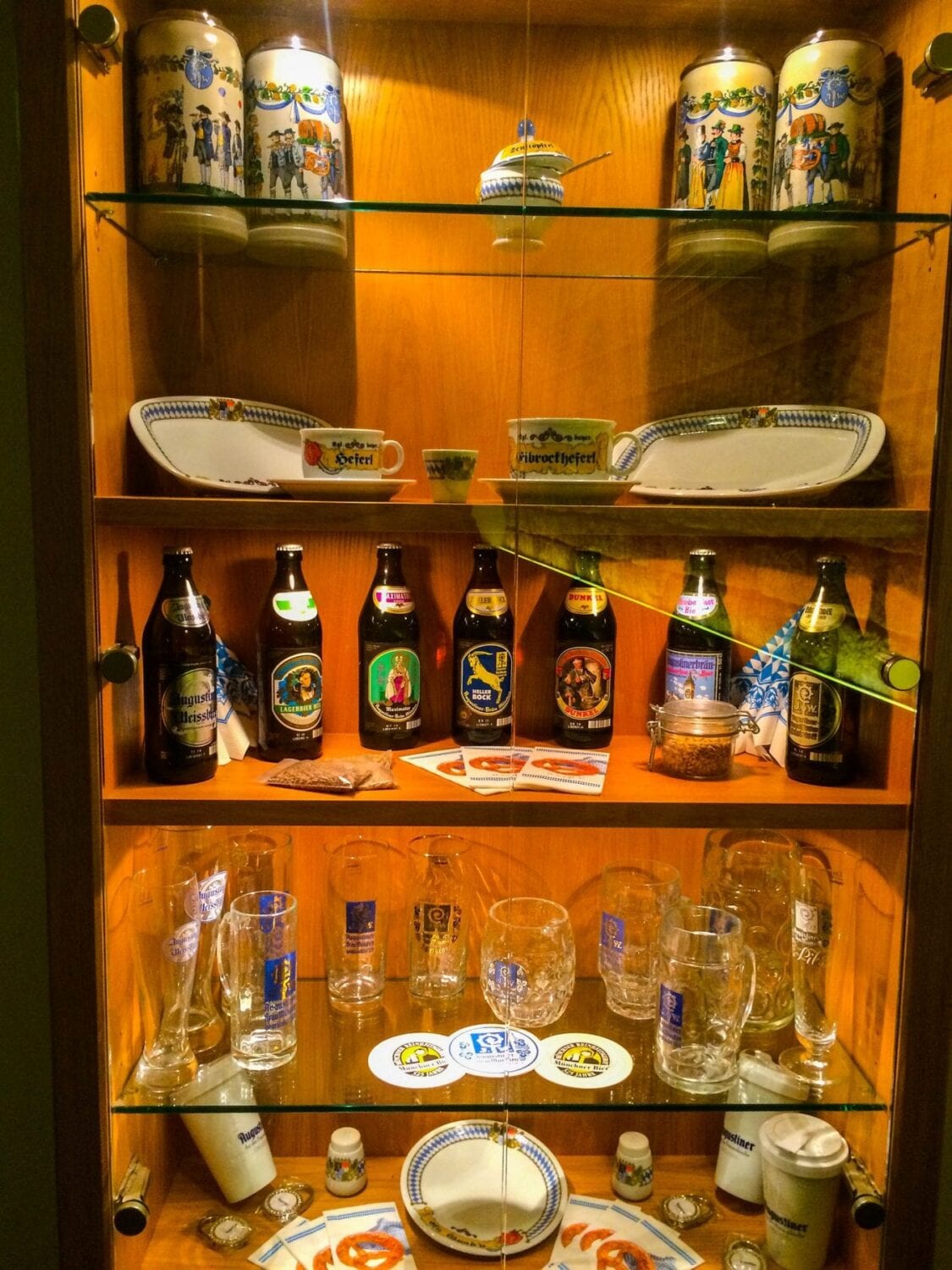
For my main dish, I was served up a unique take on the sausage and sauerkraut. A fried sausage served on a bed of deliciously seasoned lentils. The restaurant even has their newspaper which, in addition to carrying their seasonal menu, discusses news about Dresden, monthly events and much more. The perfect thing to sit and read while you enjoy your meal on the terrace of Dresden’s baroque city square.
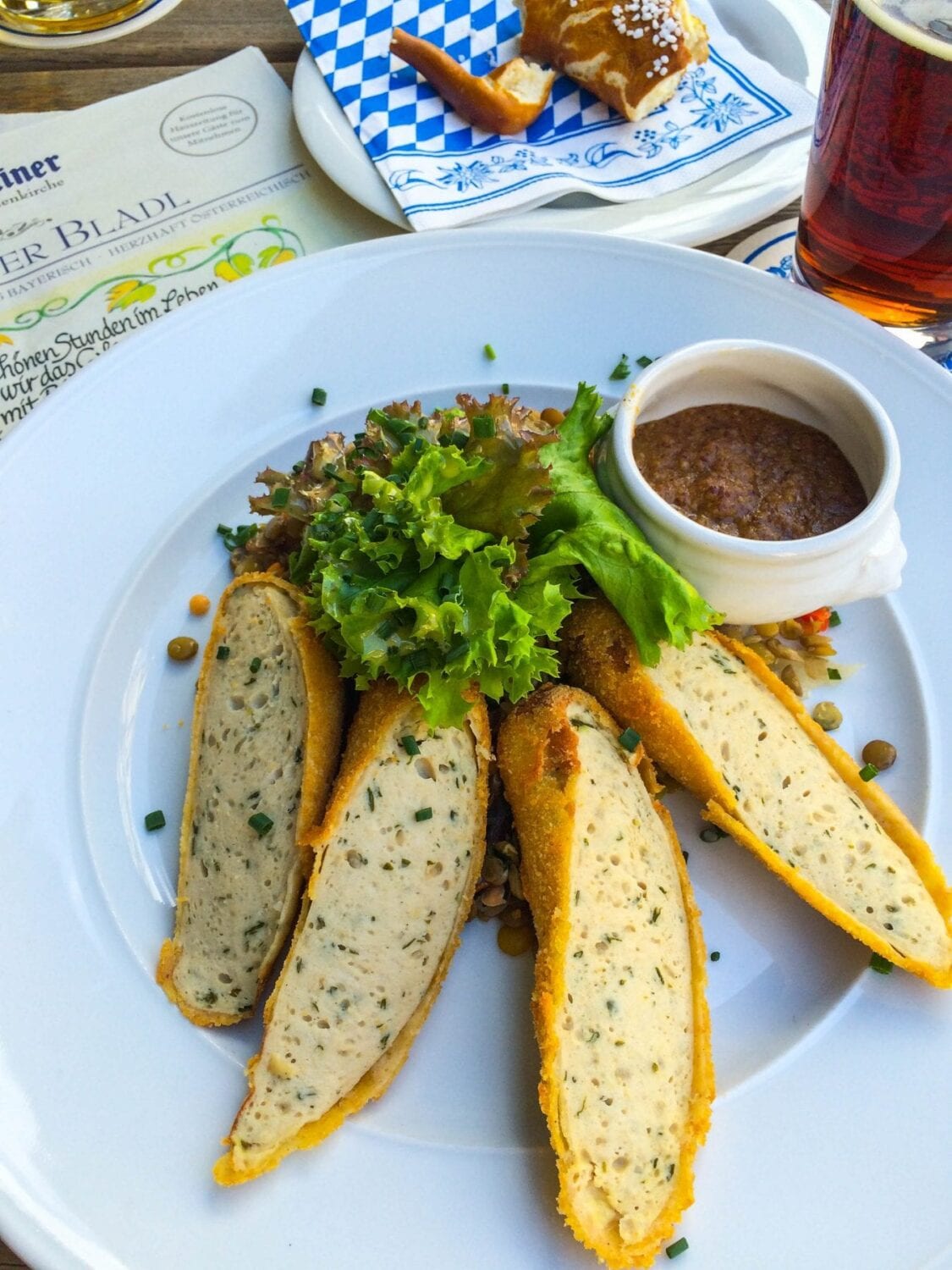
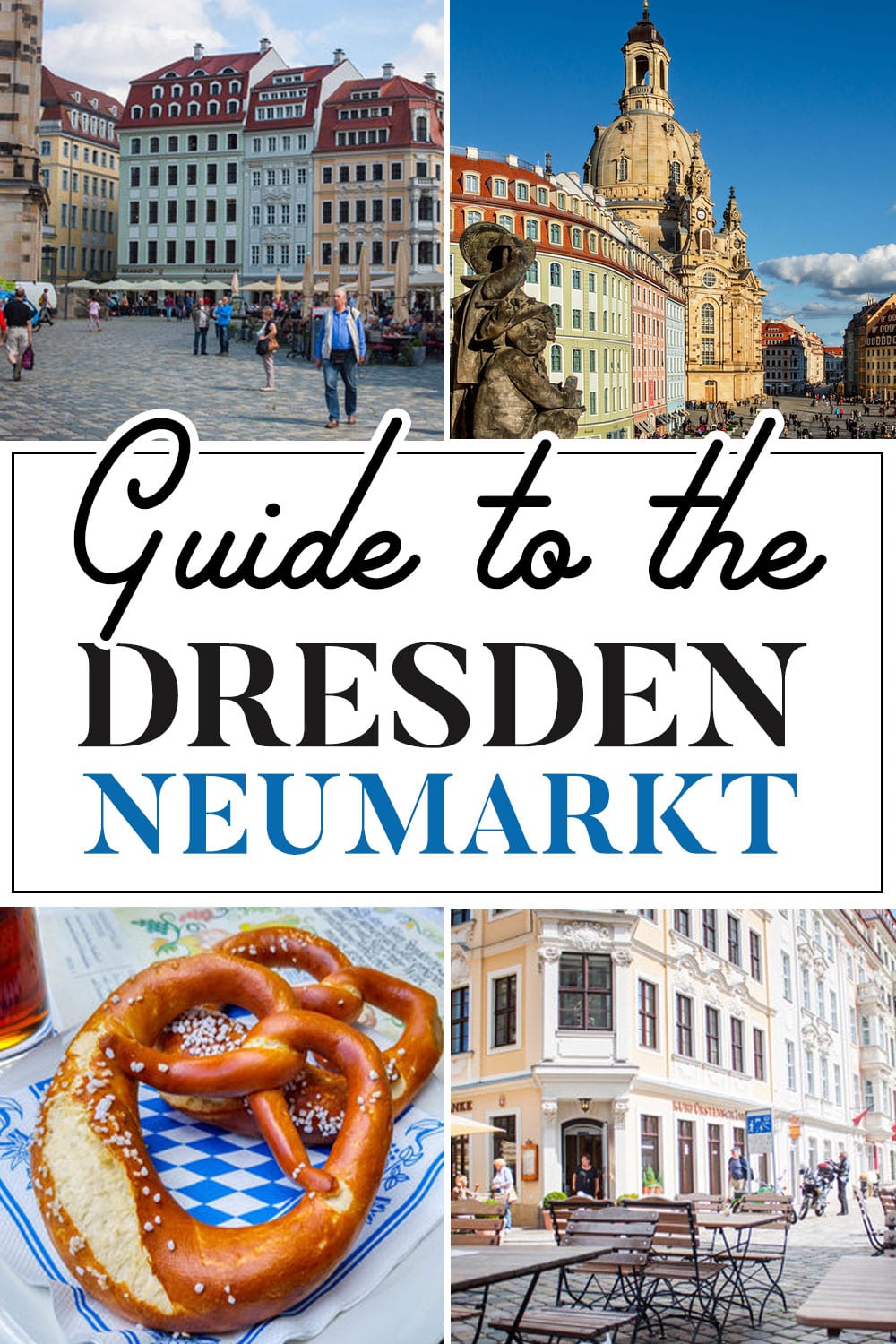


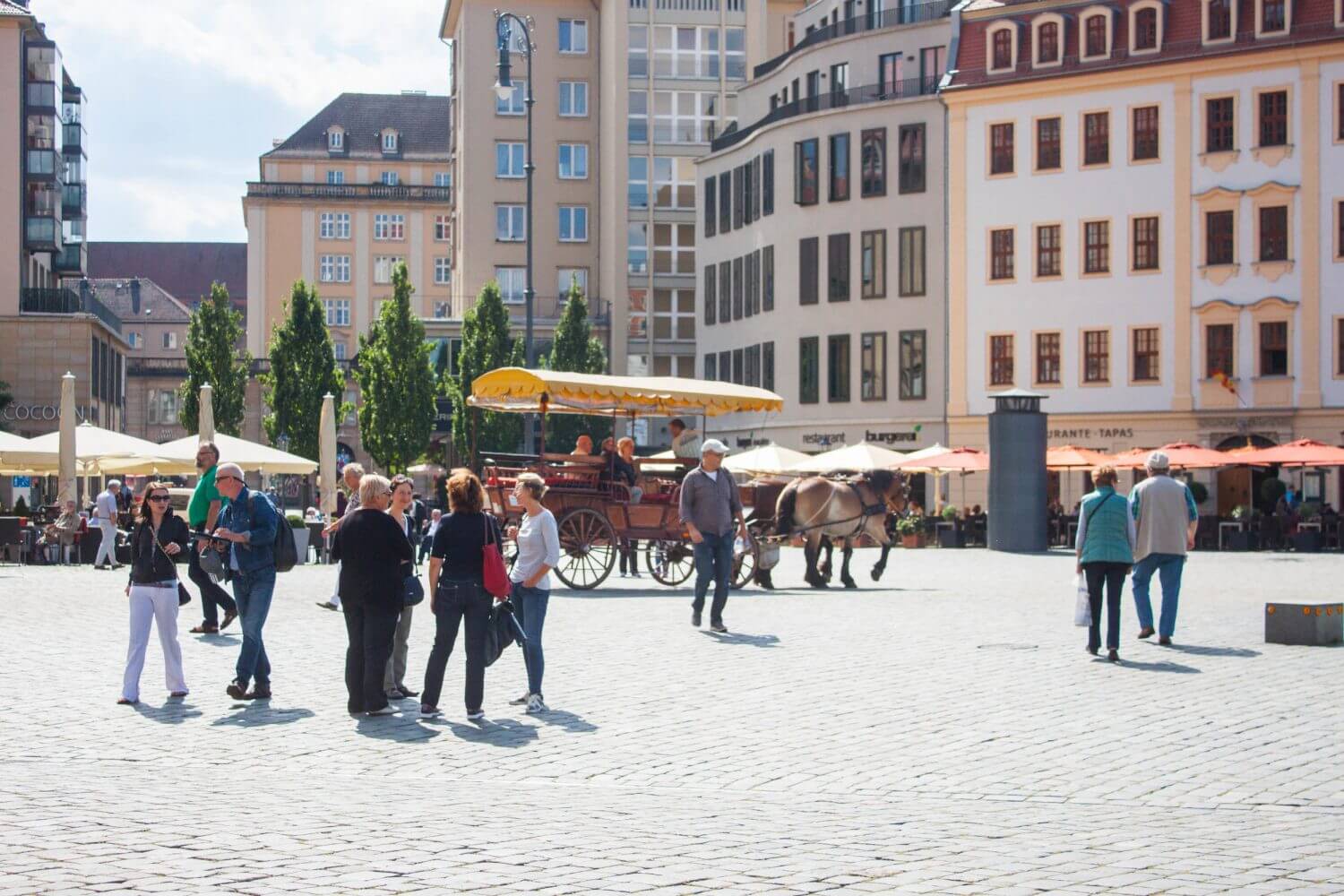
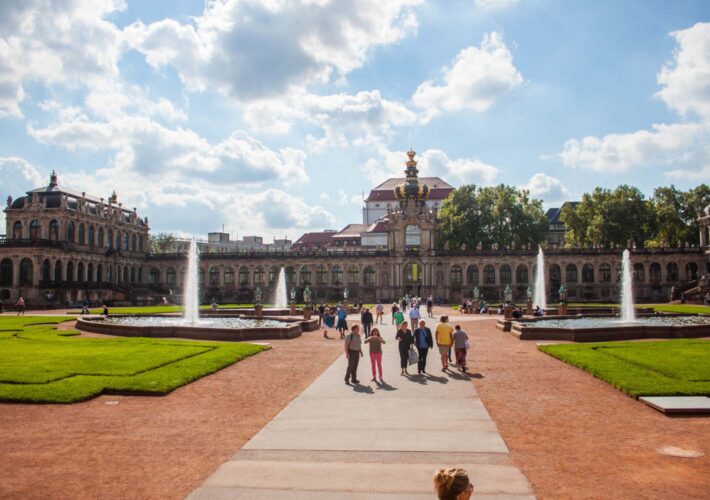
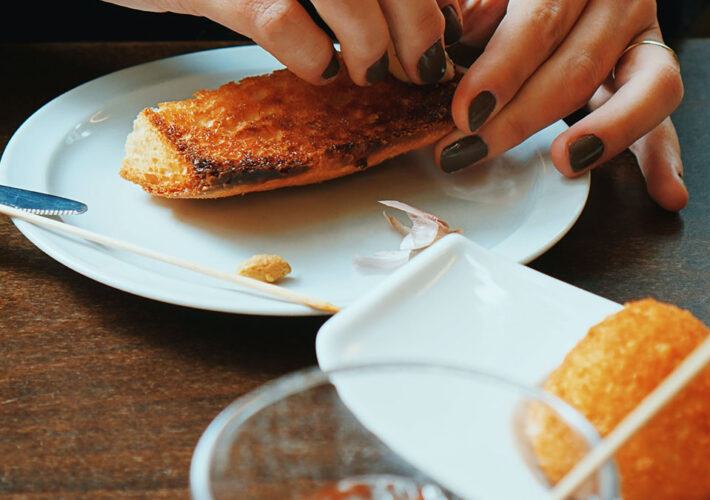
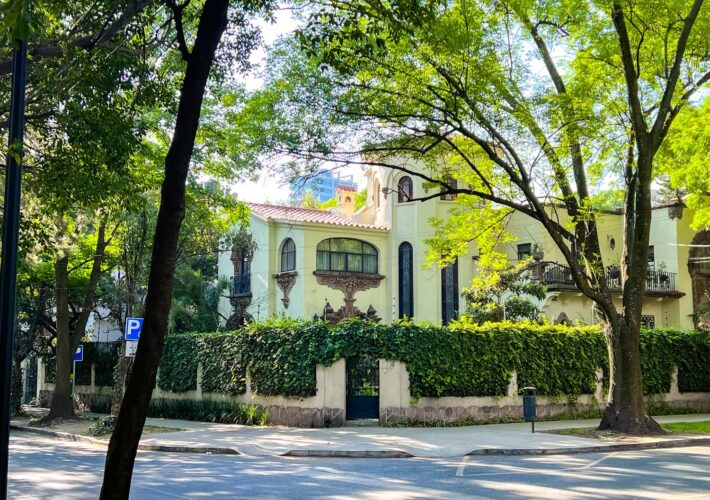
Leave a Comment